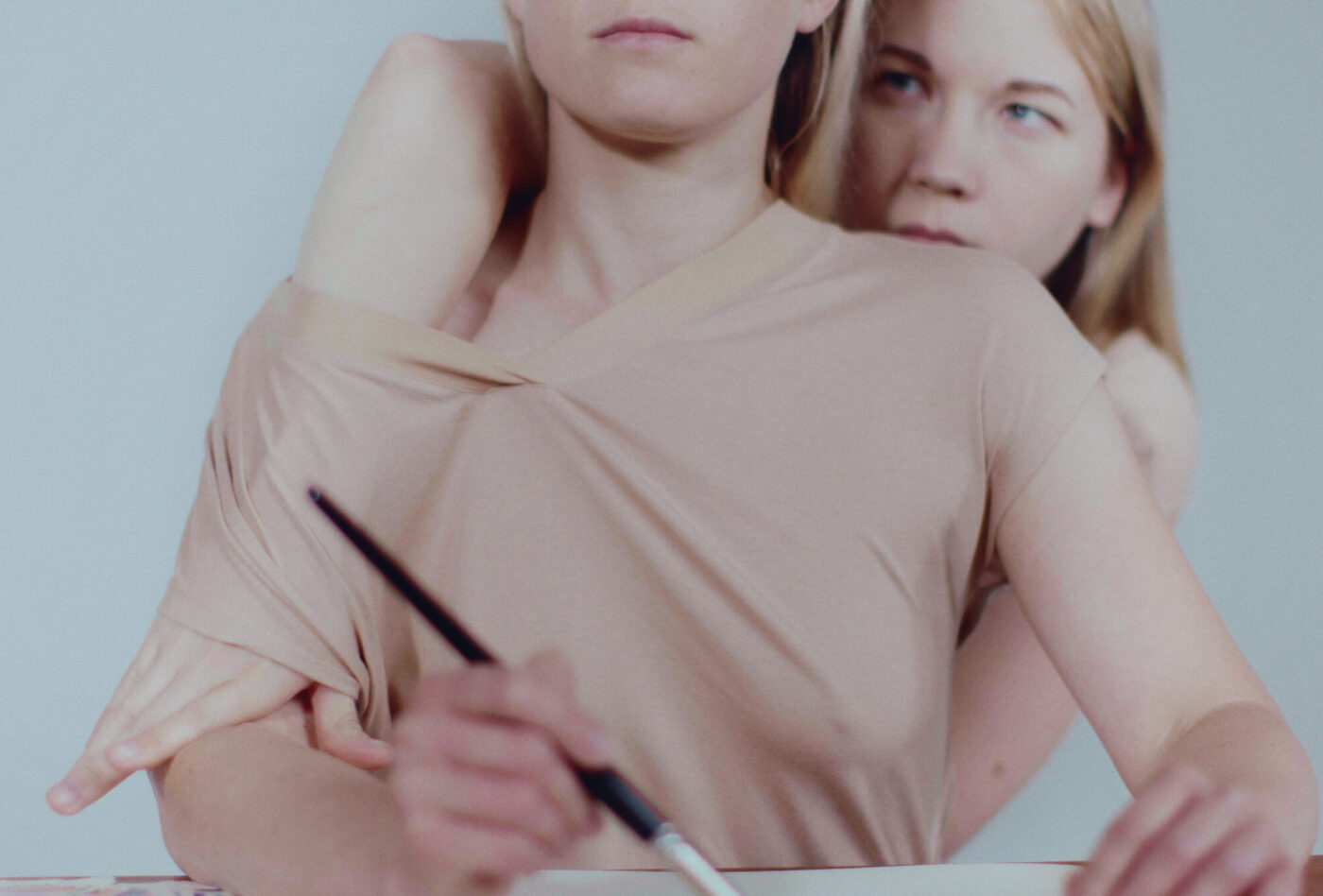
Kristina Norman
Orchidelirium / MOMENTA Biennale de l’image
09.08–10.07.2023
Room 1
09.08–10.07.2023
Room 1

Kristina Norman Rip-Off, de la trilogie Orchidelirium, 2022 Vidéo, couleur, son, 13 min 37 s © Kristina Norman, Rühm Pluss Null (Tallinn)
Artist
Kristina Norman
The tangles between collective memory and historical amnesia are at the basis of Kristina Norman’s interdisciplinary practice. Born in Estonia and part of the country’s Russian-speaking minority, Norman pays particular attention to the cultural and political geography of post-Soviet nations, torn between a desire to identify with Europe and a centuries-long heritage of German, Russian, and Soviet domination. Her work, combining documentary investigation and experimental choreography, highlights the moving, unstable, and nearly always conflictual arrangements between bodies, private and public spaces.
Orchidelirium examines the colonial history of Estonia and its contemporary ramifications. In three experimental dance films, developed as a trilogy, Norman offers a kaleidoscopic visual narrative based on the figure of the Estonian artist and botanist Emilie Rosalie Saal, who, in the early twentieth century, became a member of the Dutch colonial élite in Indonesia. How does one account for the ambivalent dynamics through which a colonized subject becomes a colonizer? What kind of psychic and social tensions accompany this kind of mutation? What happens then to one’s self-image? Inexorably drawing in the viewer’s eye, the work explores the intimate, unspeakable rifts that underlie past and present relationships of dominance as it deploys its seductive visual, auditory, almost tactile corollas. Could the mimicry and assimilation at the core of the colonial enterprise also be instruments that can convert the experience of alienation into gestures of empathy?
Exhibition presented by MOMENTA Biennale de l’image and produced in partnership with the Centre CLARK. This exhibition is funded by the Cultural Endowment of Estonia.

